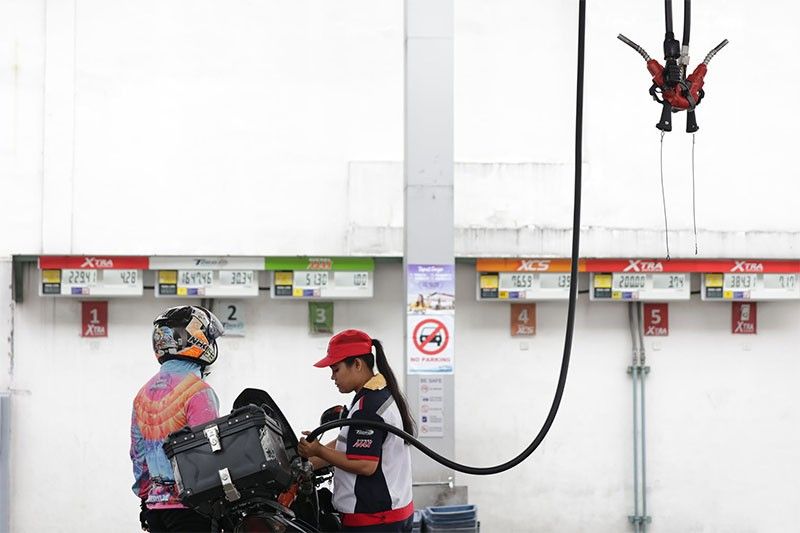
Upgrade to High-Speed Internet for only ₱1499/month!
Enjoy up to 100 Mbps fiber broadband, perfect for browsing, streaming, and gaming.
Visit Suniway.ph to learn
Bella Cariaso - The Philippine Star
April 5, 2025 | 12:00am
Rice retailers manage their stalls at Marikina Public Market on January 7, 2025.
STAR / Michael Varcas
MANILA, Philippines — Malacañang yesterday called for an investigation into reports of stakeholders’ failure to comply with the Department of Agriculture (DA)’s maximum suggested retail price (MSRP) on rice and pork products.
In an interview with Teleradyo Serbisyo, Palace press officer Claire Castro said that Agriculture Secretary Francisco Tiu Laurel Jr. had consulted with rice and pork industry stakeholders before implementing the price caps.
“They have an agreement. If there are different retail prices in the markets, there is a need to investigate this,” Castro said.
Tiu Laurel imposed an MSRP of P45 per kilo for imported rice and P350 per kilo for pork shoulder, while pork belly was capped at P380 per kilo to stabilize prices.
However, DA data revealed low compliance, with only 50 percent of rice vendors and 39 percent of pork retailers adhering to the price limits.
In Metro Manila, more than 60 percent of the markets, including Pritil Market in Manila, Trabaho Market, Cartimar Market in Pasay, Muñoz Market in Quezon City and Pasay City Market, failed to comply with the suggested price cap, with pork belly prices reaching as high as P470 per kilo in some areas.
Inflation pulled down
The Philippine Statistics Authority (PSA) reported yesterday that the country’s headline inflation slowed to 1.8 percent in March from 2.1 percent in February.
Despite low compliance rates, Tiu Laurel and the PSA credited the MSRP policy as a key factor in easing inflation.
Food inflation, which accounts for a substantial portion of overall inflation, eased to 2.3 percent in March from 2.6 percent in February.
The country’s rice inflation decelerated to 7.7 percent, the lowest in five years, since March 2020’s 8.4-percent deceleration rate.
Meanwhile, meat inflation slowed to 8.2 percent in March from 8.8 percent in February.
“While some sectors doubted the effectiveness of our MSRP implementation, the inflation numbers clearly show that we are on the right path in protecting the welfare of millions of Filipino consumers, while also ensuring that agricultural workers and others in the value chain receive a fair return for their hard work,” said Tiu Laurel.
Due to this, the government is now considering expanding the MSRP program to other commodities, such as garlic, according to the DA.
However, Tiu Laurel emphasized that imposing MSRPs is a complex process and will only be pursued when necessary.
As of April 3, the average price of imported premium rice in Metro Manila markets was P47.87 per kilo. Its well-milled counterpart averaged P43.89 per kilo while the regular-milled one averaged P40.11 per kilo.
Meanwhile, locally produced premium rice averaged P52.3 per kilo while its well-milled and regular-milled counterparts cost P45.49 per kilo and P40.67 per kilo, respectively.
Fresh pork belly sold in Metro Manila markets averaged P413.79 per kilo, while fresh pork ham cost P366.28 per kilo.
Frozen pork belly, on the other hand, cost about P312.56 per kilo while frozen pork ham averaged P253.6 per kilo. — Jasper Emmanuel Arcalas

 2 months ago
23
2 months ago
23



